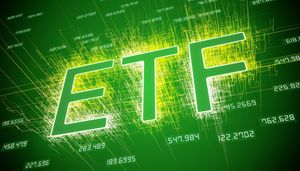BNC First Day Program Revenues Increased 32%
Recent Initiatives Expected to Drive Over $10 Million of Go-Forward Savings
BASKING RIDGE, N.J., Sept. 10, 2024 (GLOBE NEWSWIRE) -- Barnes & Noble Education, Inc. (NYSE: BNED), a leading solutions provider for the education industry, today reported sales and earnings for the first quarter ended on July 27, 2024. The following figures are GAAP results from continuing operations on a consolidated basis, unless noted otherwise. Note that Adjusted EBITDA is a non-GAAP calculation. Full quarterly financial tables and a reconciliation of non-GAAP measures to the most applicable GAAP measures can be found in the Investor Relations section of BNED’s website at https://investor.bned.com and its Current Report on Form 8-K filed with the SEC on the date of this release.
Barnes & Noble Education is a highly seasonal business, and the first quarter is historically a period of low sales activity for the Company. First quarter fiscal year 2025 revenue decreased by $(0.7) million, or -0.3%, from last year to $263.4 million, primarily driven by a net decrease in physical locations, many of which were closures of underperforming stores, which has helped to improve profitability. Revenues from BNC First Day programs increased approximately $19.6 million, or 32%, helping to offset much of the decline.
Overall net loss was $(99.5) million, which was elevated due to one-time expenses related to the recent milestone equity and refinancing transactions1, including a non-cash charge of $(55.2) million due to the extinguishment of debt caused by the conversion of our second lien debt into equity. This event meaningfully strengthened the Company’s balance sheet. Adjusted EBITDA improved by $5.2 million from last year to $(20.7) million, in part due to lower selling and administrative expenses of $10.5 million as the result of cost-saving and productivity initiatives.
Jonathan Shar, CEO, noted, “It was a very busy quarter as we completed our milestone equity and refinancing transactions and worked hard to prepare for the upcoming Fall Rush with our store teams, vendors and other business partners. We are excited by the momentum and fresh energy as we enter the new academic year.
“The rapid growth of our BNC First Day programs is a bright spot for our business, and we anticipate continued growth as numerous institutions adopt our affordable access models for the benefit of their students’ academic success through improved affordability, access and convenience.”
Shar further added, “Our stores are well stocked for Fall Rush, and we are prepared to support students across the country in their academic journey, ensuring they have the resources they need to succeed while providing all of our customers with an unmatched product assortment and retail experience."
Barnes & Noble Education is focused on driving material improvements in its profitability and seeks to further build upon the strong financial foundation that it recently attained from the milestone transactions. Management is working on consolidating and simplifying its operations to better focus on its core physical and virtual bookstore businesses. Recently completed and in-progress initiatives comprised of over $10.0 million in go-forward savings include the following:
- Streamlining corporate employee staffing levels.
- Optimizing, consolidating and bidding out various insurance programs.
- Repricing, eliminating or consolidating multiple IT and telecom vendors and programs. These efforts included enhancing certain customer support services by utilizing insourcing.
- Changing certain professional service providers and eliminating lower-impact investor and communication resources.
In the medium term, BNED believes that there are opportunities to materially improve its working capital position by lowering certain credit reserves, improving inventory turns, and enhancing the Company’s overall capital allocation framework.
BNED is also working to launch a new stock compensation program, linking elements of compensation to stock price performance, for a broad range of employees that will promote a more ownership-minded culture and better align management and employees with stockholders.
The Company anticipates spending approximately $20.0 million on capital expenditures in fiscal year 2025, with the bulk of those investments focused on store improvements and technology.
At this time, BNED is not providing formal guidance, but management’s budget goals target a material improvement in fiscal year 2025 GAAP operating results and Adjusted EBITDA versus last year. Based on current estimates of capital expenditures and significantly reduced interest costs from last fiscal year, BNED believes it can drive meaningful operating free cash flow, which will be used to further de-lever its balance sheet.
1. On June 10, 2024, the Company closed on the milestone equity and refinancing transactions, which included the infusion of approximately $80.0 million of net new cash into the business and a new four-year, $325.0 million credit facility.
Use of Non-GAAP Financial Information - Adjusted Earnings, Adjusted EBITDA, and Free Cash Flow
To supplement the Company’s condensed consolidated financial statements presented in accordance with generally accepted accounting principles (“GAAP”) the Company uses the financial measures of Adjusted Earnings, Adjusted EBITDA, and Free Cash Flow, which are non-GAAP financial measures under Securities and Exchange Commission (the "SEC") regulations. We define Adjusted Earnings as net income (loss) adjusted for certain reconciling items that are subtracted from or added to net income (loss). We define Adjusted EBITDA as net income (loss) plus (1) depreciation and amortization; (2) interest expense and (3) income taxes, (4) as adjusted for items that are subtracted from or added to net income (loss). We define Free Cash Flow as Cash Flows from Operating Activities less capital expenditures, cash interest and cash taxes.
These non-GAAP measures have been reconciled to the most comparable financial measures presented in accordance with GAAP as follows: the reconciliation of Adjusted Earnings to net income (loss); the reconciliation of consolidated Adjusted EBITDA to consolidated net income (loss); and the reconciliation of Free Cash Flow to Cash Flows from Operating Activities. All of the items included in the reconciliations are either (i) non-cash items or (ii) items that management does not consider in assessing our on-going operating performance.
These non-GAAP financial measures are not intended as substitutes for and should not be considered superior to measures of financial performance prepared in accordance with GAAP. In addition, the Company's use of these non-GAAP financial measures may be different from similarly named measures used by other companies, limiting their usefulness for comparison purposes.
We review these non-GAAP financial measures as internal measures to evaluate our performance at a consolidated level to manage our operations. We believe that these measures are useful performance measures which are used by us to facilitate a comparison of our on-going operating performance on a consistent basis from period-to-period. We believe that these non-GAAP financial measures provide for a more complete understanding of factors and trends affecting our business than measures under GAAP can provide alone, as they exclude certain items that management believes do not reflect the ordinary performance of our operations in a particular period. Our Board of Directors and management also use Adjusted EBITDA at a consolidated level as one of the primary methods for planning and forecasting expected performance, for evaluating on a quarterly and annual basis actual results against such expectations, and as a measure for performance incentive plans. We believe that the inclusion of Adjusted Earnings and Adjusted EBITDA results provides investors useful and important information regarding our operating results, in a manner that is consistent with management’s evaluation of business performance. We believe that Free Cash Flow provides useful additional information concerning cash flow available to meet future debt service obligations and working capital requirements and assists investors in their understanding of our operating profitability and liquidity as we manage the business to maximize margin and cash flow.
The Company urges investors to carefully review the GAAP financial information included as part of the Company’s Form 10-K dated April 27, 2024 filed with the SEC on July 1, 2024, which includes consolidated financial statements for each of the three years for the period ended April 27, 2024, April 29, 2023, and April 30, 2022 (Fiscal 2024, Fiscal 2023, and Fiscal 2022, respectively). The Company also urges investors to carefully review the financial information included as part of the Company’s Quarterly Report on Form 10-Q for the period ended July 27, 2024, filed with the SEC on September 10, 2024. We do not provide a reconciliation of forward-looking non-GAAP financial metrics, because reconciling information is not available without an unreasonable effort, such as attempting to make assumptions that cannot reasonably be made on a forward-looking basis to determine the corresponding GAAP metric.
ABOUT BARNES & NOBLE EDUCATION, INC.
Barnes & Noble Education, Inc. (NYSE: BNED) is a leading solutions provider for the education industry, driving affordability, access and achievement at hundreds of academic institutions nationwide and ensuring millions of students are equipped for success in the classroom and beyond. Through its family of brands, BNED offers campus retail services and academic solutions, wholesale capabilities and more. BNED is a company serving all who work to elevate their lives through education, supporting students, faculty and institutions as they make tomorrow a better and smarter world. For more information, visit www.bned.com.
Media & Investor Contact:
Kevin Watson
Executive Vice President
Chief Financial Officer
kwatson@bned.com
Forward-Looking Statements
This press release contains certain “forward-looking statements” within the meaning of the Private Securities Litigation Reform Act of 1995 and information relating to us and our business that are based on the beliefs of our management as well as assumptions made by and information currently available to our management. When used in this communication, the words “anticipate,” “believe,” “estimate,” “expect,” “intend,” “plan,” “will,” “forecasts,” “projections,” and similar expressions, as they relate to us or our management, identify forward-looking statements. Actual results could differ materially from those projected in the forward-looking statements, which include but are not limited to the anticipated savings and benefits of our expense management initiatives, anticipated growth in our BNC First Day program, future capital expenditures, expected trends in financial results, including forward-looking Adjusted EBITDA and operating free cash flow. We caution you not to place undue reliance on these forward-looking statements. Such statements reflect our current views with respect to future events, the outcome of which is subject to certain risks, including, but not limited to: the amount of our indebtedness and ability to comply with covenants contained in our credit agreement; our ability to maintain adequate liquidity levels to support ongoing inventory purchases and related vendor payments in a timely manner; slower than anticipated pace of adoption of our BNC First Day® equitable and inclusive access course material models; our dependency on strategic service provider relationships and the potential for adverse operational and financial changes to these strategic service provider relationships; non-renewal of our managed bookstore, physical and/or online store contracts; general competitive conditions; a decline in college enrollment or decreased funding available for students; technological changes, including the adoption of artificial intelligence technologies for educational content; disruptions to our information technology systems, infrastructure, data, supplier systems, and customer ordering and payment systems due to computer malware, viruses, hacking and phishing attacks; disruption of or interference with third party service providers and our own proprietary technology; impacts that public health crises may have on the overall demand for BNED products and services, our operations, the operations of our suppliers, service providers, and campus partners as well as the ability of our suppliers to manufacture or source products, particularly from outside of the United States; and changes in applicable domestic and international laws, rules or regulations or changes in enforcement practices, including, without limitation, the impact of recently proposed regulatory changes by the United States Department of Education, U.S. tax reform, or changes to consumer data privacy rights legislation, as well as related guidance. Moreover, we operate in a very competitive and rapidly changing environment and new risks may emerge from time to time. It is not possible for our management to predict all risks, nor can we assess the impact of all factors on our business or the extent to which any factor, or combination of factors, may cause actual results to differ materially from those contained in any forward-looking statements we may make.
For a more detailed discussion of these factors, and other factors that could cause actual results to vary materially, interested parties should review the risk factors listed in the Company’s Annual Report on Form 10-K for the year ended April 27, 2024 as filed with the SEC. Any forward-looking statements made by us in this press release speak only as of the date of this press release, and we do not intend to update these forward-looking statements after the date of this press release, except as required by law.









